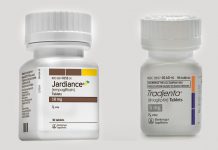People develop type 1 diabetes when their immune system attacks their own insulin-secreting beta cells in the pancreas due to autoimmune destruction.
New research has found that clinical transplantation of beta cells could cure type 1 diabetes; however, donor pancreases are quite rare.
Researchers developed improved pluripotent stem cells to generate beta cells in vitro with high glucose response and insulin secretion, which is a major step towards beta cell replacement therapy.
Pluripotent or embryonic stem cells can differentiate into every cell type of the body with unlimited self-renewing capacity. So, they are a good source to generate special cells for cell replacement therapy; for instance, beta cells for diabetics. However, in vitro beta cells are very complex because of different protocols and differentiation steps.
The process is tedious, requiring almost 20 signaling proteins and small molecules to generate the growth and differentiation of the cells, which lasts for more than four weeks.
The researchers tried to improve the quality of stem cell-derived beta cells by developing an approach to enrich the stem cell culture using special pancreas progenitors that might lead to a more targeted differentiation into beta cells.
Researcher Heiko Lickert said, “From developmental biology, we knew that pancreatic progenitors are already specified at the endoderm stage – the first step of differentiation. We needed to find out if this was true also for human pluripotent stem cell differentiation.”
They identified a monoclonal antibody known as CD177. “With CD177 we can already see at an early stage if the cells are on the right differentiation track,” Lickert said. “This can help save lots of time, efforts, and money.”
The researchers explained that enriching the stem cell culture with CD177 increases the generation of pancreatic progenitors, leading to more mature and more functional beta cells, which can respond well to glucose.
With the help of CD177, it will improve the quality of the in vitro beta cells and increase their clinical safety. This could be a crucial step towards the development of stem cell-derived beta cell replacement therapy for patients suffering from type 1 diabetes. In addition, CD177-generated beta cells are found to be more similar to beta cells in the human body. So, the CD177 protocol may help in establishing disease modeling systems, which can be similar to the human pancreas.





















